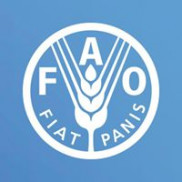Share
Print

FAO - The Food and Agriculture Organization of the United Nations is a specialized agency of the United Nations that leads international efforts to defeat hunger. Serving both developed and developing countries, FAO acts as a neutral forum where all nations meet as equals to negotiate arguments and debate policy.
FAO is also a source of knowledge and information, and helps developing countries in transition modernize and improve agriculture, forestry and fisheries practices, ensuring good nutrition and food security for all. Its Latin motto, fiat panis, translates as "let there be bread". As of May 2017, FAO has 197 member states, along with the European Union (a "member organization"), and the Faroe Islands and Tokelau, which are associate members.
Representatives of members meet at the biennial FAO Conference to review global governance policy issues and international frameworks, as well as to evaluate work carried out and to approve the budget for the next biennium. The Conference elects Council Members, to serve three-year rotating terms to carry out executive oversight of programme and budgetary activities. The Conference also elects a Director-General to a four year term of office, renewable once. The current Director-General, José Graziano da Silva, assumed his functions on 1 January 2012 and was re-elected for a term which expires on 31 July 2019.
FAO’s new focus on governance is driven by the recognition that mission-critical development-related processes affecting food security and nutrition, livelihoods, and the management and sustainable use of natural resources confront increasingly complex governance challenges. Broader, more flexible and responsive, and more capable governance institutions and mechanisms are necessary to improve effective coordination among diverse stakeholders, enabling problem-solving while working towards the achievement of multiple, and sometimes conflicting, objectives.
FAO promotes good practice in addressing governance challenges across its Strategic Objectives by strengthening its contribution to global governance, identifying mission-critical governance issues at national, regional and multilateral levels, strengthening staff capacity to support improved governance and monitoring and evaluating its interventions assessing its experiences for lessons learnt with a view to build our governance-suport capacities.
